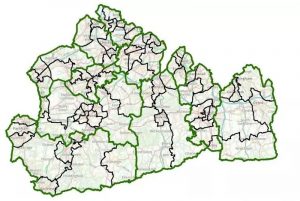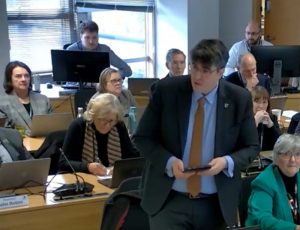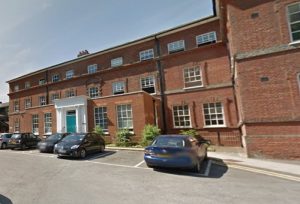A man who was charged £70,000 by a Surrey council said it was a “watershed moment” to be given recognition of his struggle and the right to appeal. A couple were slammed with a hefty fee for a home extension and given no opportunity to argue their case.
Community Infrastructure Levy (CIL) is a legal charge designed to get developers to financially contribute towards essential infrastructure. While self-builders and home extensions are exempt from CIL payments, in Waverley applicants must first complete the necessary paperwork for this.
But with residents being unaware they need to apply for an exemption, or due to paperwork errors, some people have unexpectedly had to face extortionate CIL charges and terrifying enforcement action.
Steve and Caroline Dally were granted planning consent to demolish and replace an existing home extension that was exempt from CIL. However, after seeking permission to make some minor amendments (for which consent was granted) they suddenly and unexpectedly faced a £70,000 CIL charge, with no appeal.
Unlike in criminal cases, the paperwork and administrative processes of CIL means people could accidentally face charges between £40,000- £235,000 and have no right for their case to be reconsidered.
They pursue you relentlessly to get the money out of you,” said Steve Dally, “There’s no compassion, there’s no understanding.” He explained the council told him he had 60 days to pay the £70k or his home in Godalming was at risk of being re-possessed and he would go to prison. As this was the start of the Covid lockdown in 2020, he feared the worst.
The 65-year-old has been forced to increase the mortgage on his home by £400 per month, pending full repayment when he turns 70. He may have no choice but to sell the home he has worked his entire life for, just to settle this debt. “It’s traumatic,” Mr Dally said. “You lose sleep and end up crying your eyes out- what can you do about it?”
Fighting the council since 2020, Mr Dally had approached councillors and the local MP and the ombudsman to change the CIL charge levied against him and his wife. But none of them could ultimately remove the fee.
On Tuesday, January 28, Waverley Borough Council agreed to ensure the public have the right to appeal the CIL charges. Mr Dally described it as a “watershed” moment as it was the “first time that someone was prepared to stand up and fight for you”.
Speaking out for the victims, Councillor Lauren Atkins said the “Life-changing unintentional impacts of CIL have resulted in debt, depression and years of feeling unheard and being unanswered.” She called for the council to collaborate and seize the “opportunity to see justice for those wronged”.
But now, householders previously subject to CIL liability can request a discretionary review by Waverley Borough Council within a window from 1 June 2025 to 31 May 2026. The council agreed to have a discretionary review of CIL payments for householder applications and will consider refunds of CIL previously collected.
Mr Dally said the change did not guarantee victims were going to get their money back. “It’s a long way to go yet,” he said, arguing it depends on how “compassionate” the reviewer will be of people’s cases. “There will be a lot of people in Surrey that will be impacted by the same and will not know which way to turn.” he said.
Speaking to the Local Democracy Reporting Service (LDRS), Mr Dally reeled off other people who had been found foul of the CIL charge on their residential properties. He said one man was charged £200k and a wife looking after her husband with dementia was fined £40k.
Councillor Jane Austin said: “We see the unintended consequence of this aspect of s legislation has caused great financial and emotional distress to people who have unwittingly broken rules they didn’t know existed.”
She acknowledged Waverley council is, going forward, trying to ensure householders are made aware of CIL and its exemption paperwork. Cllr Austin added: “But we need to right this wrong for those who have already had to make these huge payments.”
Leader of the council, Cllr Paul Follows, said work is already being done to investigate the CIL levy issues but welcomed the cross-party collaboration. The CIL levies will be reviewed as part of the council’s Local Plan process, according to Cllr Follows.
“I hope the poor folk who are being pestered by Waverley to pay these charges will be left alone until we have resolved this,” said Cllr Michael Goodridge. He raised concern that he has been told everyone has been looking at the issue for a while, but it could take a lot more time in the Local Plan.
The Liberal Democrat council leader also added the CIL regulations was something his party had inherited from the previous administration. Members also broadly agreed more education of the CIL process was needed, both for councillors and the public.
Emily Dalton
Steve Dally (right) and his wife Caroline. (Credit: Steve Dally)
What is the position in Epsom and Ewell?
Community Infrastructure Levy (CIL) in Epsom and Ewell Borough
The Community Infrastructure Levy (CIL) is a charge imposed by Epsom and Ewell Borough Council on certain types of new development. It helps fund local infrastructure, such as schools, healthcare facilities, and transport improvements.
Does CIL Apply to Single Residential Developments or Home Extensions?
When CIL is Payable
CIL applies if your project involves:
- New dwellings – Any development that creates a new residential unit is liable for CIL, regardless of size.
- Large extensions – If an extension or new build increases the gross internal floor area by 100 square meters or more, CIL applies.
When CIL is NOT Payable
You may not have to pay CIL if:
- Your project adds less than 100 square meters of additional internal floor space (unless it creates a new dwelling).
- You qualify for exemptions or reliefs (see below).
CIL Exemptions and Reliefs
Some developments may be exempt from CIL, including:
- Self-build homes – If you’re constructing your own home, you can apply for a self-build exemption.
- Residential annexes or extensions – If the work is for your own use and meets specific criteria, it may be exempt.
- Affordable housing – Developments that meet affordable housing requirements are exempt.
Important: You must apply for exemptions before starting construction. Failure to do so may result in the full CIL charge becoming payable.
How is CIL Calculated?
CIL is based on the net increase in gross internal floor area (GIA) and is subject to annual indexation.
Current Residential CIL Rate (2025): £204.50 per square meter
(Source: Epsom & Ewell Borough Council)
CIL Process & Next Steps
If your project is subject to CIL, follow these steps:
- Submit a Planning Application – Include the required CIL forms when submitting your application.
- Complete an Assumption of Liability Form – Before starting work, submit this to the Council.
- Submit a Commencement Notice – Notify the Council before construction begins.
- Receive and Pay Your CIL Charge – Once the Council issues a Demand Notice, make the payment as required.
More Information & Guidance
For full details, access CIL forms, and check the latest updates, visit:
Epsom & Ewell Borough Council CIL Guidance
Sam Jones











